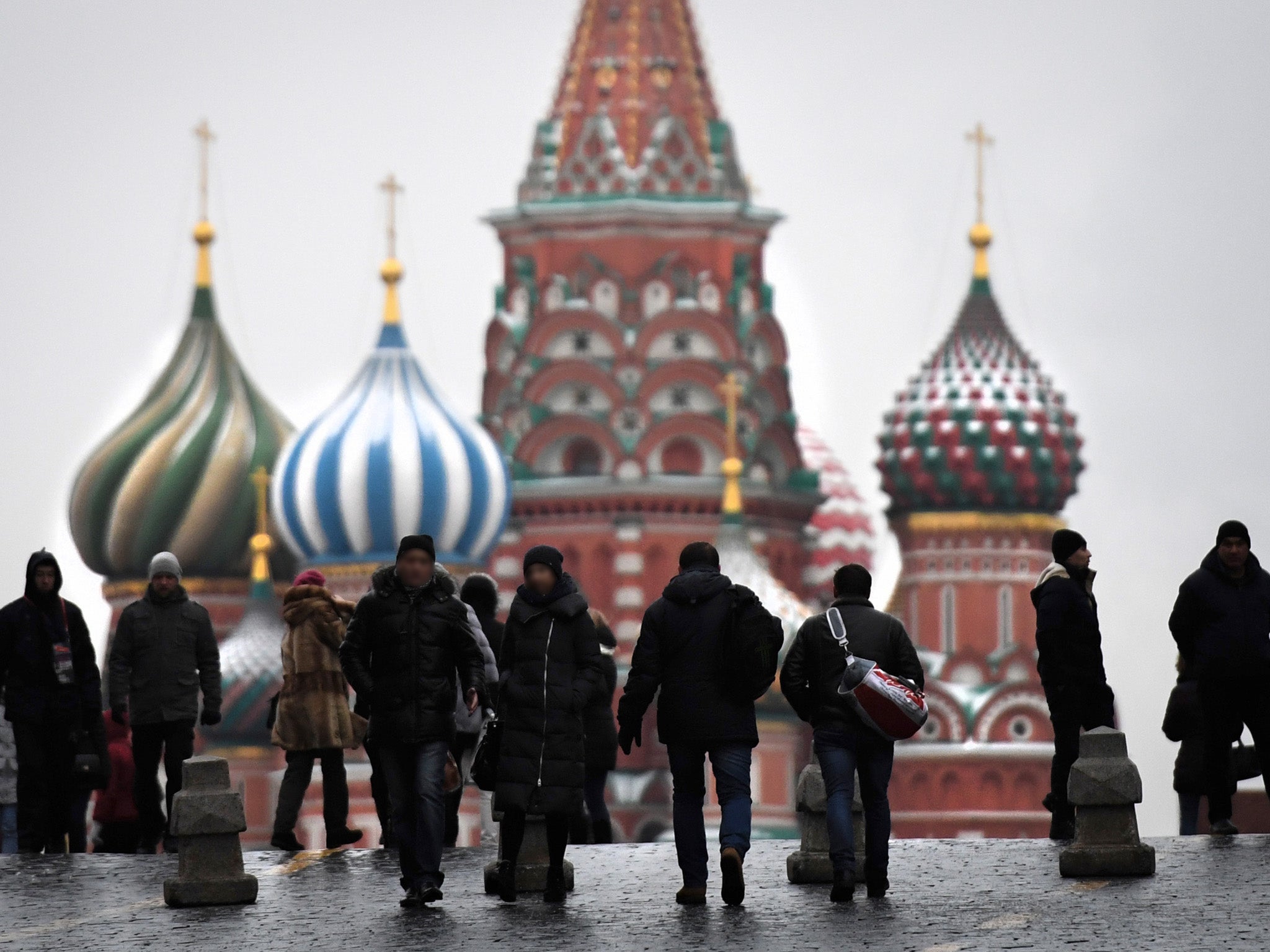Foreign Office warns tourists of possible 'anti-British sentiment or harassment' in Russia
Travellers have been told to 'remain vigilant'

Your support helps us to tell the story
From reproductive rights to climate change to Big Tech, The Independent is on the ground when the story is developing. Whether it's investigating the financials of Elon Musk's pro-Trump PAC or producing our latest documentary, 'The A Word', which shines a light on the American women fighting for reproductive rights, we know how important it is to parse out the facts from the messaging.
At such a critical moment in US history, we need reporters on the ground. Your donation allows us to keep sending journalists to speak to both sides of the story.
The Independent is trusted by Americans across the entire political spectrum. And unlike many other quality news outlets, we choose not to lock Americans out of our reporting and analysis with paywalls. We believe quality journalism should be available to everyone, paid for by those who can afford it.
Your support makes all the difference.British tourists travelling to Russia have been warned to remain “vigilant” by the Foreign and Commonwealth Office (FCO) due to possible “anti-British sentiment or harassment” .
The FCO has updated its travel advice due to heightened political tensions between the two countries following Prime Minister Theresa May’s decision to expel the largest number of Russian spies in 30 years.
“Due to heightened political tensions between the UK and Russia, you should be aware of the possibility of anti-British sentiment or harassment at this time,” says the updated FCO advice.
“You’re advised to remain vigilant, avoid any protests or demonstrations and avoid commenting publically on political developments; while the British Embassy in Moscow is not aware of any increased difficulties for British people travelling in Russia at this time, you should follow the security and political situation closely and keep up to date with this travel advice.”
Ms May today announced that 23 diplomats have been identified as “undeclared intelligence officers” and given one week to leave the UK.
The move came in response to the poisoning of ex-spy Sergei Skripal and his daughter Yulia Skripal; the Russian government failed to comply with the UK’s demand for an explanation as to why a Russian-made nerve agent was used in the attack in Sailsbury.
Ms May also confirmed that no UK dignitaries will attend the World Cup in Russia this year, and said a planned visit by Russian foreign minister Sergey Lavrov will be scrapped.
According to the FCO, terrorists are “very likely” to try to carry out attacks in Russia. The advice says: “These have mainly been by Islamist and rebel groups in the North Caucasus, but attacks aren’t limited to this region. Some previous attacks have seen large numbers of casualties.
“A suicide attack on the St Petersburg metro on 3 April 2017 resulted in 15 deaths and many injuries.”
Russian aviation has also been targeted; on 31 October 2015, a Russian flight from Sharm el Sheikh in Egypt to St Petersburg crashed in North Sinai. Russian authorities stated the crash was caused by an explosive device on board the plane.
British tourists are advised to be “vigilant in all public places, including major transport hubs, tourist sites and crowded areas – particularly where access isn’t controlled (eg open-air events and markets).”
Join our commenting forum
Join thought-provoking conversations, follow other Independent readers and see their replies
Comments